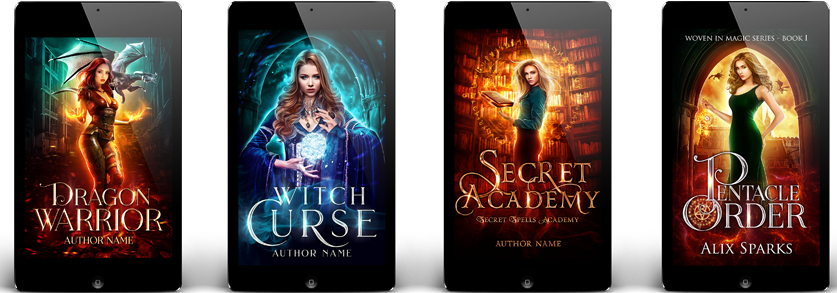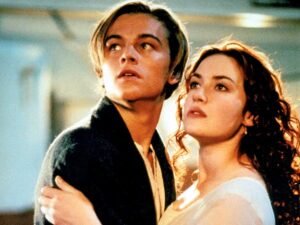Urban fantasy is a genre that blends magical elements with contemporary settings, offering readers a unique lens through which to view the modern world. This genre not only entertains but also reflects and comments on contemporary issues and trends. By juxtaposing fantastical elements with real-world concerns, urban fantasy novels offer profound insights into the challenges and changes of our times. Here’s how urban fantasy books mirror contemporary issues and trends.
1. Addressing Social Inequality
Urban fantasy often incorporates themes of social inequality and injustice, using its supernatural elements to highlight and critique these issues. For instance:

- Series: The Magicians by Lev Grossman
Overview: The series explores themes of privilege and entitlement through the lens of a magical academy where only a select few are given power and opportunity.
Reflection: The portrayal of elitism and the struggles of those who feel marginalized provides a commentary on real-world social disparities. - Series: The City We Became by N.K. Jemisin
Overview: This novel portrays New York City as a living entity fighting against an otherworldly threat, reflecting on the city’s diverse and complex social fabric.
Reflection: It addresses issues of racial and cultural identity, gentrification, and the impact of social dynamics on urban life.
2. Exploring Technological Advancements
Urban fantasy books often integrate modern technology into their magical worlds, reflecting society’s growing dependence on and concerns about technology:
- Series: The Iron Druid Chronicles by Kevin Hearne
Overview: The series features a druid living in the modern world who interacts with contemporary technology alongside ancient magic.
Reflection: The juxtaposition of technology and magic highlights themes of progress, technological impact on daily life, and the preservation of tradition. - Series: The Laundry Files by Charles Stross
Overview: This series combines espionage, bureaucracy, and supernatural threats with a heavy dose of technological innovation.
Reflection: It comments on the role of technology in both enabling and mitigating supernatural risks, reflecting contemporary anxieties about security and surveillance.
3. Addressing Environmental Concerns
Urban fantasy often uses its magical settings to comment on environmental issues, exploring themes of nature conservation and ecological balance:
- Series: The Hidden Legacy by Ilona Andrews
Overview: The series features a world where magic and environmental issues intersect, particularly through characters who must balance their magical powers with the impact on the natural world.
Reflection: It raises questions about humanity’s relationship with nature and the consequences of environmental neglect. - Series: The Last Sun by K.D. Edwards
Overview: The novel incorporates elements of environmental degradation and the struggle to restore balance to a world affected by magical and ecological crises.
Reflection: It highlights the importance of ecological stewardship and the effects of environmental destruction on both magical and mundane worlds.
4. Reflecting Issues of Identity and Diversity
Urban fantasy frequently delves into issues of identity, including race, gender, and sexuality, providing a platform for diverse voices and experiences:
- Series: The Shadowhunter Chronicles by Cassandra Clare
Overview: This series explores themes of identity, belonging, and diversity within a magical society that mirrors real-world complexities.
Reflection: It addresses issues of race, sexuality, and the struggle for acceptance in a fantastical setting, reflecting contemporary discussions on diversity. - Series: The Inheritance Trilogy by N.K. Jemisin
Overview: Jemisin’s work frequently includes themes of identity, power, and cultural conflict, set against a backdrop of intricate world-building.
Reflection: The series provides commentary on societal hierarchies, power dynamics, and the fight for social justice.
5. Navigating Personal and Social Challenges
Urban fantasy novels often explore personal and social challenges, offering readers relatable struggles and triumphs:
- Series: Mercy Thompson by Patricia Briggs
Overview: The series features a mechanic who is also a shape-shifter, dealing with personal trauma, societal expectations, and the complexities of relationships.
Reflection: It provides insights into personal resilience, the impact of past trauma, and the search for self-acceptance. - Series: The October Daye series by Seanan McGuire
Overview: October Daye, a half-fae private investigator, navigates both supernatural threats and personal issues, including trauma and family dynamics.
Reflection: The series portrays the struggle to overcome personal demons while addressing broader themes of belonging and identity.
6. Commentary on Urban Life
Urban fantasy often reflects the complexities and vibrancies of city life, using its magical elements to explore urban issues:
- Series: Rivers of London by Ben Aaronovitch
Overview: The series features a police constable who deals with magical crimes in a contemporary London setting.
Reflection: It offers a commentary on urban life, including crime, social issues, and the integration of magical and mundane elements. - Series: The Mortal Instruments by Cassandra Clare
Overview: Set in a modern-day New York City, the series blends magical elements with urban settings, exploring themes of family, loyalty, and power.
Reflection: It reflects on urban challenges and the complexities of city life, portraying a hidden magical world within a bustling metropolis.
Conclusion
Urban fantasy novels are more than just escapist fiction; they offer a reflective mirror to contemporary issues and trends. By blending magical elements with modern settings, these books provide insightful commentary on social inequality, technological advancements, environmental concerns, identity, and urban life. Through their unique narratives, urban fantasy novels not only entertain but also provoke thought and discussion about the world we live in.

